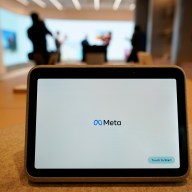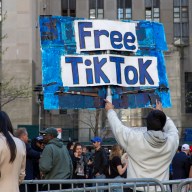TORONTO – Conrad Black won his bid for bail on Monday after a U.S. Supreme Court ruling last month weakened the law that was used to convict him and send him to prison.
Black’s appeal lawyer, Miguel Estrada said his client had not yet been released.
“He is not yet out,” Estrada said in an email.
“The terms will be set by Judge (Amy) St. Eve, as soon as we can get in front of her.”
St. Eve presided over Black’s criminal trial in 2007 in Chicago.
Jacob Frenkel, a former federal prosecutor and white collar crime expert, says Black could be out of jail as early as Tuesday, and likely some time in the next week after the U.S. Court of Appeals for the 7th Circuit granted the bail motion.
And the former newspaper mogul has every reason to be hopeful that he will not need to go back to jail, he added.
The fact that Black’s been granted bail suggests the appellate court is likely to throw out the mail and wire fraud conviction, he added.
“Bail relates in many respects to the likelihood of success and I think on some level, the court is adopting the view that if all that survives is the obstruction of justice conviction, then Conrad Black might be set free.”
In addition to fraud, Black was convicted of the more serious count of obstruction of justice that carried a 6{-year sentence, which he is serving in a Florida jail. He has spent more than two years in jail.
The obstruction charge wasn’t part of the Supreme Court’s recent decision but Black’s lawyers are arguing the obstruction conviction should also be thrown out.
In the request for bail, Black’s lawyers argued the Supreme Court’s “rejection of the fraud theory goes to the heart of the most hotly contested issues at Mr. Black’s trial _ whether there was a scheme to defraud and whether Mr. Black ‘corruptly’ intended to obstruct the investigation of this non-crime…”
Prosecutors argued Black, 65, should remain in the low-security federal prison in Coleman, Fla. because the ruling doesn’t affect the obstruction of justice count.
It’s likely he will remain convicted on the obstruction of justice count, Frenkel said.
“Nevertheless, he may finally be getting the get out of jail card,” he added.
“It is … plausible that Judge St. Eve will give him credit for time served and end his incarceration.”
Frenkel said the fact that Black turned himself in will be regarded favourably in his bail hearing.
“He gets a lot of points and will not be regarded as a significant flight risk.”
Frenkel said in addition to a feisty legal team, Black lucked out and owes a debt of gratitude to the Supreme Court decision a few weeks ago that ruled in favour of former Enron executive Jeffrey Skilling.
Black and three other former executives from the media empire Hollinger International were convicted of swindling the company’s shareholders out of US$6.1 million. Black is the only one still in jail.
But last month, the U.S. high court weakened the “honest services” law that was central to Black’s conviction on three counts of mail fraud and said the law had to be applied more narrowly.
The ruling didn’t exonerate Black but does give him another chance to argue against his convictions.
“There is no question the first person on Conrad Black’s holiday card list should be Jeffery Skilling,” Frenkel said.
“The Supreme Court’s decision was not about Conrad Black, it was about how U.S. criminal prosecutors were overreaching in their application of this particular statue.”
Three cases had been connected to that honest dealings fraud law that the United States Supreme Court had been concerned about. If it had just been Black’s case, it’s not clear whether the argument would have been accepted, Frenkel said.
“The court was deeply troubled by how the government was applying it more broadly than congress had intended,” Frenkel said.
But the decision to overturn that application of the law will not significantly undermine the ability to prosecute white collar crime because there are still many laws on the books that it does not adversely affect.
“This decision by the United States Supreme Court may have taken an arrow out of the government’s quiver but its still firing at full strength at white collar offences.”
The U.S. Justice Department said at the time of the Supreme Court ruling that prosecutors would continue to urge that honest services convictions for Black and others be upheld.
The court’s decision made headlines all over the world, in large part because of the names of those sitting in prison as a result of the law, including Black, former Enron boss Skilling, disgraced lobbyist Jack Abramoff and California congressman Randy “Duke” Cunningham.
Black was originally charged with more than a dozen criminal allegations, most accusing him or his associates of siphoning millions of dollars away from the publicly traded company and to themselves or private companies they controlled.
However, after a months-long jury trial in Chicago, Black and his co-accused were convicted on only three of the fraud counts against them. Black was also convicted of obstruction of justice but he was found not guilty by the jury on most of the counts against him.
The Hollinger International media empire, which Black controlled through a series of public and private Canadian companies, once owned the Chicago Sun-Times, The Daily Telegraph of London, The Jerusalem Post and hundreds of community papers in the United States and Canada.
Almost all of Black’s former corporate holdings have been sold to various buyers, but there are still several lawsuits before the courts on both sides of the border in the wake of the Black media company’s collapse.
















